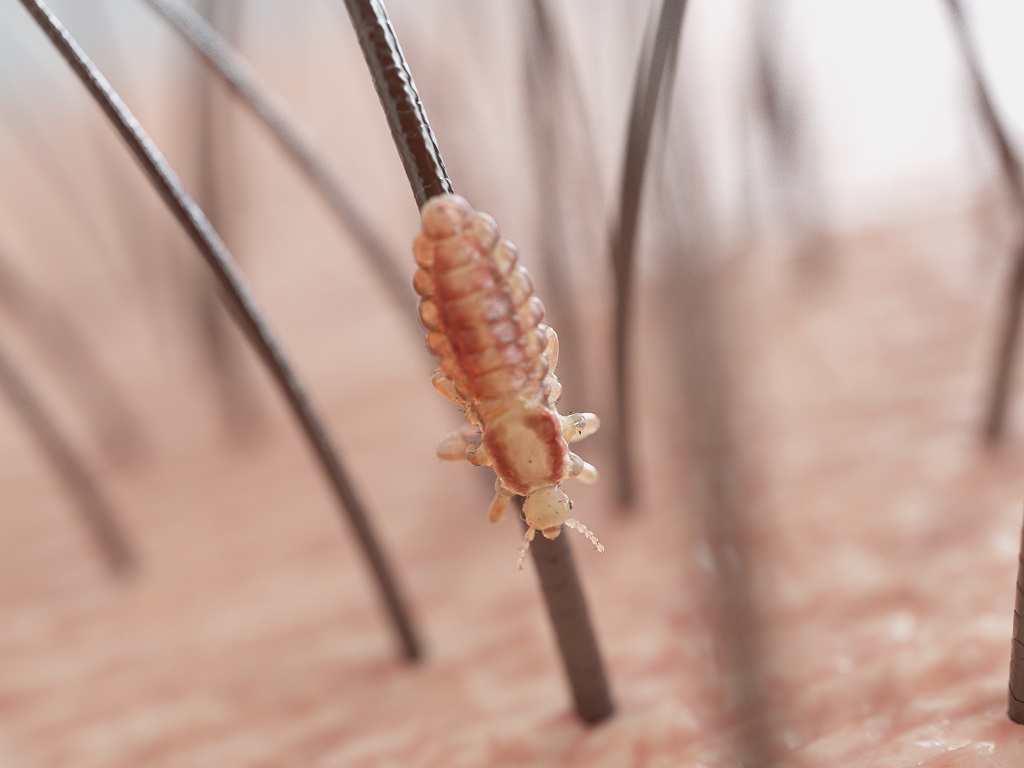

What are head lice?
Head lice are tiny wingless insects about the size of a sesame seed that live in the hair of humans and animals where they feed on blood by biting the skin. Head lice commonly affect children but adults can also have lice.
What are the symptoms of head lice?
Lice often cause itching of the skin. Bites can cause the skin to become red and irritated, which can be made worse by scratching.
You can see the lice and nits (eggs) if you look closely at your head and scalp. Nits look like tiny white dots attached firmly to the hair. They cannot be brushed or flicked off the hair, but must be physically removed with fingers or fingernails or special nit combs.
How are head lice spread?
Head lice are only found on the human head or hair. Lice can spread when people are in close contact and when they share an affected comb or hair brush.
Lice need warmth and blood to survive so they do not live for long on furniture, hats, bedding, carpet or anywhere else in the environment.
How are head lice treated?
There are two main treatment options for head lice:
- wet combing using conditioner and a fine-tooth comb
- chemical removal using synthetic or natural insecticides
The wet combing method is a cheap and effective way to treat head lice. The conditioner doesn’t kill the lice but it briefly stuns them, making it easier for the nit comb to trap and remove the lice and eggs.
If you decide to use chemical treatment, it is important that you follow the instructions closely. Repeat the chemical treatment in a week to kill any newly hatched eggs.
No single treatment works for everyone. You might need to try a few different treatments or a combination to find the method that works best for you.
Should I keep my child home from school?
There is no requirement to keep children home from school or child care as long as effective treatment begins before the next day of school or child care.
Can head lice be prevented?
It is difficult to prevent head lice. There is no evidence that chemical or herbal products can ward off head lice. Some people think that having clean hair can prevent head lice — but head lice are attracted to hair


